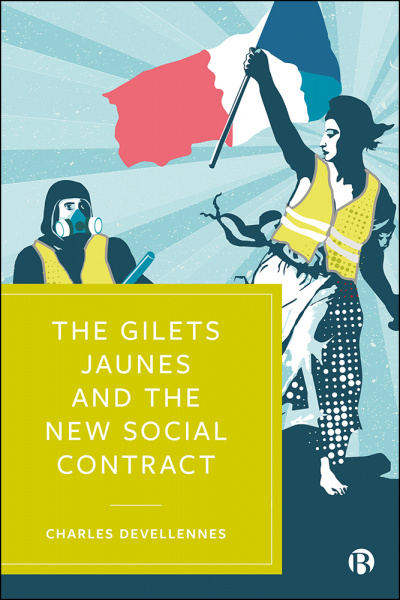The 18 November 2018 set in motion a new type of social movement in France. Named the Gilets Jaunes after their iconic yellow high visibility jackets, protesters took to the streets every Saturday for over a year until their protests were curtailed by the Covid-19 pandemic. The movement, initially protesting an increase in the price of petrol, soon escalated to a challenge to the existing social contract in France, demanding widespread changes to French society and politics. The Gilets Jaunes raised a number of important questions which Devellennes illuminates in the context of the social contract tradition.
Published on 8 January 2021 The Gilets Jaunes and the New Social Contract is the first English-speaking work on the movement and an important contribution to thinking about a contemporary event from a philosophical position. Visiting the importance of four difference concepts – violence, liberty, democracy and economic justice – Devellennes argues that the social contract needs renewal not only in France, where the protests happened, but more widely in modern liberal democracies. It revisits some of the classic authors of this tradition, such as Hobbes, Spinoza, Rousseau, and John Rawls, to bring a critical engagement with concepts that shape our lives on a daily basis.
“In doing so, it raises important questions for the future of democratic thought, such as: what constitutes legitimate violence, by the state or by citizens?” Devellenes explains “Should the freedom to philosophise be enlarged to include the freedom to protest? What type of democracy is possible in the current context, and can it complement the representative institutions we already have? Should we rethink justice to include economic issues? What would a new social contract look like for the twenty-first century?”

